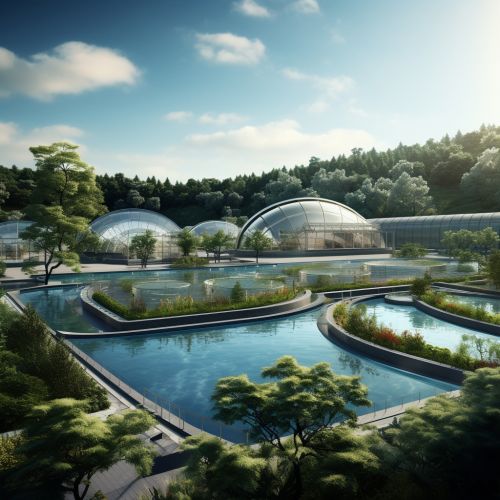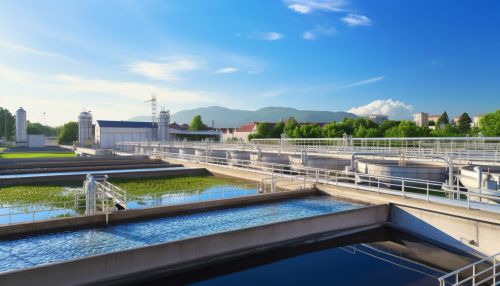Water supply
Introduction
Water supply refers to the provision of water by public utilities, commercial organisations, community endeavors, or by individuals, usually via a system of pumps and pipes. It is essential for life across the globe, including both human civilization and all other ecosystems.
Water Sources
Water supply systems derive water from a variety of locations, including groundwater (aquifers), surface water (lakes and rivers), and the sea through desalination. The water is then, in most cases, purified.
Water Treatment
Water treatment is an important process in water supply. Water from sources such as rivers, lakes, and wells can contain impurities such as bacteria, algae, viruses, fungi, and minerals that can pose health risks. Water treatment aims to remove these impurities and make the water safe for human consumption.
Water Distribution
Once treated, water is distributed to consumers through a complex network of pipes, pumps, and storage facilities. This is known as a water distribution system. These systems are designed to deliver water to consumers with appropriate quality, quantity, and pressure.
Water Supply Infrastructure
Water supply infrastructure involves a complex network of structures and facilities that include dams, reservoirs, pumping stations, water treatment plants, pipes, and taps. These components work together to ensure that water reaches the end-users safely and efficiently.
Water Supply Challenges
There are numerous challenges associated with water supply. These include water scarcity, water pollution, aging infrastructure, and the impacts of climate change. Addressing these challenges requires innovative solutions and sustainable management practices.
Water Supply and Public Health
The quality of water supply has a direct impact on public health. Contaminated water can lead to a range of health problems, including diarrhoea, cholera, dysentery, typhoid, and polio. Therefore, ensuring access to safe and clean water is a key public health objective.
Water Supply and Sustainability
Sustainable water supply is a major concern for the future. It involves managing water resources in a way that meets current needs without compromising the ability of future generations to meet their own needs. This includes considerations of water efficiency, water conservation, and the use of renewable sources of water.
See Also


